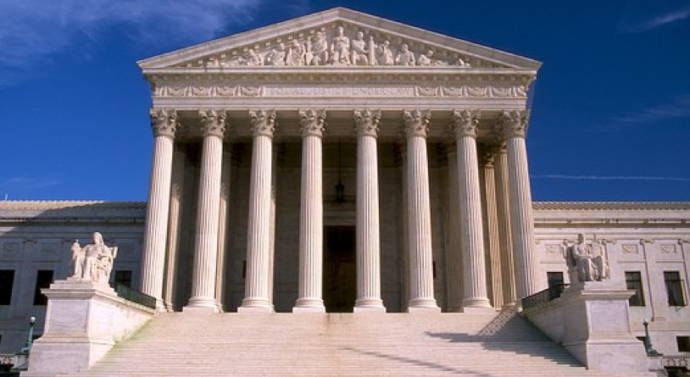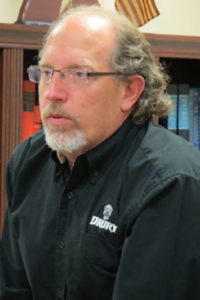
Drury students hold mock Supreme Court arguments with Court of Appeals judges
Campus News April 6, 2018, Comments Off 133This semester, Drury students taking Dr. Dan Ponder’s Supreme Court and Constitutional Law class will continue their tradition of arguing Supreme Court cases in front of actual Missouri Court of Appeals judges.
Students in the class pair up in teams of two and are put on opposing sides of Supreme Court cases that have been already orally argued but have not yet been decided by the court. They write up briefs advocating for their respective sides, then prepare and execute oral arguments.
Instead of a panel of professors playing the role of the justices, like at other schools with this type of class, they get to go in front of real judges.
The tradition started in 2008 when Ponder first came up with the idea of making an actual Supreme Court argument part of the course. Originally, he intended for lawyers, professors, and alumni in the legal field to sit as the mock Court. But after sharing the concept with local attorney and Drury faculty member Janis Prewitt, she suggested that he reach out to actual judges.
Thus, the tradition was born. Originally the arguments were held in the basement of the Olin Library, but the last two iterations of the class have seen the students argue in the Missouri Court of Appeals Southern District chambers in the Hammons Building.
Ponder says that one of the main goals is to get students into the content.

Dr. Dan Ponder is the mastermind behind this event. Photo via Drury University
“I want to really get students to understand the role of the Constitution in our lives, the different ways the Constitution can be interpreted and how to link an argument to the text. One thing that a lot of people do is say ‘that’s unconstitutional’ or whatnot, but they actually have no idea whether or not it’s actually in the Constitution,” said Ponder.
Drury senior Zach Thomas, who majors in political science and criminology, took the class when he was a sophomore and went through this process.
“It was easily one of the coolest things I’ve ever done at Drury,” said Thomas.
For Thomas, the qualities for success at oral argument are two-fold.
“Mostly it’s just being able to think on your feet and apply the knowledge you have to different questions, examples and counterarguments that the mock justices ask you,” said Thomas.
He also credits the class as helping him to decide to go to law school.
This year the class will argue the two cases: Carpenter v. United States and Masterpiece Cakeshop v. Colorado Civil Rights Commission.
The former case is a criminal law issue about whether or not warrantless search and seizure of cell phone records is allowed under the fourth amendment. The latter is an infamous first amendment case which has asked the Court if a Colorado law can constitutionally require a cake baker to make a wedding cake for a gay marriage.
These cases inevitably lead to some people having to argue for an opinion that they might not personally hold. For Ponder this is an important lesson.
“They still have to provide a solid argument on whichever side they choose,” said Ponder. “Learning to make all possible arguments and to think from your opponent’s perspective helps enhance students’ abilities to think about something from many sides rather than just asserting their own opinion.”
The class might not be actually arguing in the Supreme Court, but Ponder has definitely made it feel that way.
Article written by Johan Englén.